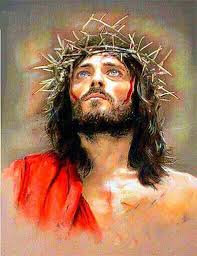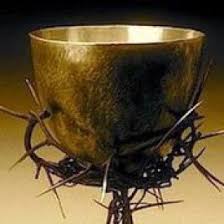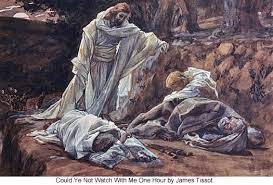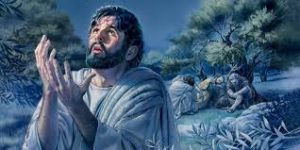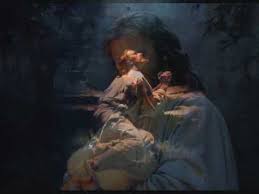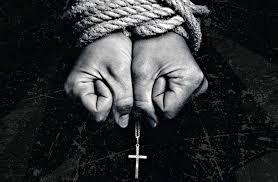Lm – Judas Hangs Himself Matthew 27:3-10 and Acts 1:18-19
Judas Hangs Himself
Matthew 27:3-10 and Acts 1:18-19
About 6:00 am Friday morning, the fifteenth of Nisan
Judas Hangs Himself DIG: What did Judas do with the thirty pieces of silver? What did the Sadducees do with it? How was it a fulfillment of Jeremiah’s prophecy? Did death relieve Judas’ guilt? How does the Matthew account dovetail with the Acts account of Judas’ suicide?
REFLECT: Both Peter and Judas caved in under pressure, yet history has treated them very differently. Why? What is the effect of the suicide of an unsaved person? What is the difference between remorse and repentance? Is there any sin that you can commit that cannot be forgiven by the blood of Christ?
Judas clutched at the messenger’s robe. The little man asked to see Caiaphas at once. The messenger gave the betrayer the back of his hand. The high priest, he shouted, was too busy to spend time with crazy people. Judas’ deceitful eyes saw a knot of people gathering around him and the messenger. The apostate apostle was certain they were all trying to stop him from explaining how this trivial matter had gotten out of control.
He swallowed and determined to try to speak softly. What he wanted to say amounted to breast-beating remorse, but his voice was so subdued and shaky that no one could grasp a word he was saying and people started to laugh. The messenger laughed too, and then he broke through the little ring of people to deliver the messages to Caiaphas who seemed preoccupied. Judas, still whispering hoarsely, begged him to please stop and listen. When the messenger jogged away, the betrayer threatened to return the thirty pieces of silver. Then the high priest, as a matter of justice, would have to return the prisoner. This, he mumbled to himself, was simply a matter of justice or lack thereof.
When Judas, who had betrayed Him, saw that Jesus was condemned, he was seized with remorse (Matthew 27:3a). But his remorse was not repentance of sin. Mattityahu did not use the Greek word metanoeo, which means a genuine change of mind and will, but metamelomai, which merely points to regret or sorrow. The betrayer did not experience spiritual repentance, but only emotional remorse. Even though he would not repent of his sin, he could not escape the reality of his guilt. Genuine sorrow for sin (metamelomai) can be prompted by God the Holy Spirit in order to produce repentance (metanoeo) as Rabbi Sha’ul states in Second Corinthians 7:10. But, Judas’ regret and sorrow only led to guilt and despair.
The words that Christ had spoken to him in the garden of Gethsemane: Judas, are you betraying the Son of Man with a kiss (Luke 22:48)? must have burnt a hole into his soul. He decided to return the thirty pieces of silver to the Sadducees in the Temple (Matthew 27:3b). The word for Temple here is the Greek word naos, or the sanctuary itself, and not hieron, for the Temple Mount. Once the sin had been committed, all the glamour or supposed justification passed away quickly and only the naked reality remained. Jesus was condemned to be crucified. As Judas watched the Master being carried away to Pilate, the full enormity of his treachery finally began to dawn on him as he realized the Jewish leaders fully intended to put Yeshua to death.1536
The people in front of his eyes diffused into vague forms and melted against the whiteness of the marble columns in the Royal Stoa. He was alone again. He clutched at his neck and then he began running. Reaching the Court of the Gentiles, he raced north toward the Sanctuary. He ran through the crowds of worshipers with remarkable agility, and he ducked and skidded and jarred people without a second thought or apology.
When Judas reached the Court of the Priests, he turned into the inner room of the offerings. Several of the Sadducees were there holding a discussion. They knew Judas, because these were the men who had paid him. When they saw him, they were dumbfounded as he approached bowing and groveling and rubbing his hands together and smiling. He had come to ask a favor and he did not want to alienate them, so he pretended not to notice their aloofness.
Judas wet his lips and was determined that he would not shout. He cleared his throat and with forced sweetness, said, “I have sinned, for I have betrayed innocent blood” (Matthew 27:4a). Evidently the money was a continual reminder of His sin. This was not true repentance, but remorse and regret for the consequences of his actions. Peter also failed Messiah with his three denials. Yet, he even with that terrible sin he truly repented and was ultimately restored (to see link click Mn – Jesus Reinstates Peter).1537 For Judas, however, the roads, the streets, people’s faces all seemed to condemn him. He always felt it, and he imagined it until his whole being was on fire. He tried to give the blood money back to the chief priests who served under the high priest Caiaphas, but they were unsympathetic.
The Sadducees looked at each other and then back at the traitor. They couldn’t be less sympathetic for this little man. The high priest had negotiated for the deliverance of the Nazarene, and had paid for it. They had been ordered to pay the traitor thirty pieces of silver out of the Temple treasury and they had done it. There had been witnesses to the transaction. What more did he want? “What do we care?” the ranking one among them said, “That’s your problem” (Matthew 27:4b NLT). His only reward would be infamy.
Judas’ mouth opened to speak, and then it closed. The shock of their words was beyond bearing. Didn’t they understand? The whole arrangement was a mistake. He tried to speak to them again, but they were in an animated conversation and they had work to do to get ready for the Chagigah offering at 9:00 am. Judas wanted to cry, but the tears of remorse just would not come.
He stood, wild-eyed, mouth open, staring at the Sadducees. His thoughts, imprisoned in the confused brain of the false apostle, kept racing around in circles. It was then that he realized, without a shadow of a doubt, that what they had meant was that the entire matter was out of their hands. They were not going to lift a finger to save this troublemaking rabbi, and if Judas had, as he protested, betrayed innocent blood, then it was his crime, and not theirs.
Judas stood indecisively for a moment. Then he made a decision. He could correct the misunderstanding by returning the money. In his twisted mind, if he accepted nothing for the betrayal, then it was no longer betrayal. The Torah said that no deal was complete until each of the parties had full possession of the merchandise. Well, Caiaphas had Jesus. But Judas would nullify the agreement by returning the money.
Yes, that would do it!
He reached into his outer robe and untied the long leather strings around his money apron, and pulled it out. The priests paused for a moment to watch him. Then, nervously, Judas counted out thirty silver coins. Then, not being certain whether he was perhaps returning thirty-one, he counted them again. He had thirty. In utter desperation and frustration Judas defiantly threw the money into the holy place (Greek: naso) and left (Mattityahu 27:5a). The music of the money rang through the big room and the coins danced and spun and rolled in slower and slower circles until they came to rest on the floor. Then Judas turned, apron in hand, leather strings flying behind him, and ran. Heaven and earth had vanished. Judas was so totally trapped in the darkness and corruption of sin that he became a willing instrument of the Adversary. He had totally renounced Christ. Satan controlled him. There was no escape, no help, no counsel, or hope anywhere. Therefore, Judas rushed out from the Temple.
Because the Sadducees were forced to take back the silver coins, they had to devise a way to dispose of it. They picked up the coins and said: It is against the Torah to put this into the treasury. Since the money was blood money, it was contaminated and abhorrent to ADONAI (compare Deuteronomy 23:18). Accordingly, it could not be deposited into the Temple treasury, the place from which it had presumably it had come. This much the Sadducees would admit, though they were quite oblivious to their own complicity.1538 Evidently the pious hypocrites had convinced themselves that the ends justified the means when it came to turning Jesus over to the Romans. And yet they were pious about using this money! It was blood money in the truest sense of the phrase (Matthew 27:6).
But by stating it was blood money they condemned themselves out of their own mouths. By definition, blood money referred to money illegitimately paid and received to falsely convict a man of a crime that led to his execution. So at the height of hypocrisy the Sadducees had no problem about taking money out of the Temple treasury to pay for Judas to betray Jesus, but now they had reservations about putting it back. In doing so, they testified to the world of their guilt. It is fascinating to notice how callous and unfeeling they were about their crime, in contrast to the crushing agony of the betrayer that drove him to kill himself in a futile attempt to pacify his guilt.
So, in order to soothe their consciences, they decided to use the money to buy the potter’s field as a burial place for foreigners. This field was where potters had collected clay to use in their trade. Perhaps the clay was depleted and the field was available for a cheap price. The religious leaders may have reasoned that they would use the blood money to buy a defiled and useless field in which to bury defiled foreigners, or Gentiles. Or the field may have been used to bury any traveler who died while visiting Jerusalem, especially those who were indigent.1539 But it was bought with blood money. That’s why it has been called the Field of Blood to this day (Mt 27:7-8). Therefore, Judas did not personally buy the potter’s field, but he did so indirectly. The Sadducees actually bought the Field of Blood with the payment he received for his wickedness (Acts 1:18a).

In an effort to soothe his guilt Judas then went away and hanged himself (Matthew 27:5b). As Judas ran out of the Temple his lungs burned and cried out for air, but he did not stop. He went south through the wealthy residential section of the Upper City, then through the Lower City, little legs flying, eyes bugged out like those of one who does not see, and to families out for a holy day morning stroll he was a comical figure. Some called out as he passed, but Judas heard nothing.
When he reached the broad white Roman steps, Judas hurried across them, skipping so the he would not fall, and then ran through the tall cypresses pointing green apostrophes at the sky. Instead of breath, little cries came from his mouth. He ran as far as the inside of the wall, and then, like an animal looking for an exit, he turned right and ran to the west. When he came to the gate leading to Bethlehem, a sea of people were coming in, and Judas swam the tide with his legs churning and his arms flailing.
Outside the wall, he ran along the little path that hung over the Valley of Hinnom. The little field he had helped to buy lay directly across from him, but Judas did not know; nor would he have wanted to know. Now he was slowed to a walk, because the path clung to the wall and hung over the edge of nothing. Far below were the jagged chunks of rock left over from the building of the wall.
Judas walked carefully along until he came to a lonely fig tree. It grew out from the path and hung its spring leaves over the valley. The traitor placed his foot against the tree trunk and pushed violently. The tree barely shook. He breathed hard – painfully hard. He looked around for something, but could not find anything to assist him. Then he looked at the money belt in his hand and crept up the small trunk until he found a strong branch. Judas leaned out and tried to rock the branch. It moved slightly.
He leaned out, straddling the branch, and tied the thick leather belt to it. It was the money belt that had carried those thirty pieces of silver. Then he took the other string, on the far side of the apron, and tied it securely around his neck. Judas made several knots behind his ear and then slowly, carefully, he crept off the branch.
The little man clung to the wood with both hands for a moment. He was now quite calm and collected. Finally, he was at ease with his decision, foolishly thinking he could escape his pain. Then he released one hand . . . and then the other . . . and fell into eternity. It was done. Judas dropped a few feet and swung back and forth like a lazy pendulum. The branch creaked as he swung. After a few seconds, he reached up to the leather belt and tried to grasp it and lift himself up. His mouth opened and contorted, but no sound came out. His legs convulsed and drew themselves up, almost to his chest. He made one more attempt to pull himself up, and then his hands fell back and settled by his side and he swung back and forth in a wide arc. He was the first of the Twelve to die, and he died before his Master.1540
It was early morning. At that moment, the sky lighted up and the darkness changed to bands of yellows and unbelievable pink. The colors became diffused and spread over the dome of the sky until, at last, the Levite on the highest pinnacle of the Temple could sound his shofar and Yerushalayim began to awaken.
It was the first day of the Passover and according to Jewish law if there was a dead body hanging in Jerusalem then the whole city was considered defiled and the morning offering could not be celebrated. But since the body hung in the Valley of ben Hinnom, the City of David was considered cleansed and the celebration of the Passover could begin. They could return later and recover the body for burial.
Consequently, the betrayer’s body hung there until the sun set on Passover. However, the festivals of Unleavened Bread and Pesach together lasted for seven days (Exodus 12:19). No one would dare touch his body during that time for fear of defilement. Heaven only knows how long he hung there that week, but ultimately the weight of his body broke whatever branch he hung on and he fell headlong down the steep cliffs onto the jagged rocks of the Valley of Hinnom below. His body burst open and all his intestines spilled out (Acts 1:18b).1541 Death, however, did not relieve his guilt. It only made it permanent. As the Savior of Sinners repeatedly declared, hell is a place of eternal torment, of weeping and gnashing of teeth (Matthew 8:12, 13:42 and 50, 22:13, 24:51, 25:30). And eternity is a long time.
Everyone in Jerusalem heard about this, so they called that field in their language Akeldama, that is, the Field of Blood (Acts 1:19). The location of that field is unknown, but traditionally it is believed to be near the Greek Orthodox Church and Covenant of Saint Oniprius, where the Valley of Hinnom joins the Kidron Valley, southwest of the City.
In classic Jewish fashion, Matthew combines a number of prophetic passages and puts them under the heading of the main scroll, or Jeremiah.1542 Then what was spoken by Jeremiah the prophet was fulfilled, “They took the thirty pieces of silver, the price set on him by the people of Isra’el, and they used them to buy the potter’s field, as the Lord commanded me” (Mattityahu 27:9-10). While Zechariah specifically mentions the purchase price (Zechariah 11:12-13), it was Jeremiah that dealt with the purchase of the field. So when Matthew talks about the field of blood or the potter’s field, he was building upon what Jeremiah had already written (see my commentary on Jeremiah Cz – Judah is Like a Broken Jar).
In his third symbolic action, ADONAI told Jeremiah to buy a jar and take the elders of the people (civil leaders) and the elders of the priests (religious leaders) to the Valley of Ben Hinnom. Earlier Jeremiah had told them that the Valley of Ben Hinnom would be renamed the Valley of Slaughter, for they will bury the dead in Topheth until there is no more room (Jeremiah 7:30-34). It was there that the Israelites practiced child sacrifice, burning their sons and daughters in the fire (2 Kings 21:6; 2 Chronicles 33:6; Jeremiah 19:5). The origin of the word Topheth (topet) is uncertain, but possibly it came from a word for oven. But there was a deliberate change in vowels where the vowels from the word shame (boset) were transferred to Topheth to emphasize the shameful character of the practices there. These high places of idol worship were located in the Valley of Ben Hinnom. Over the centuries Topheth became known as the potter’s field.1543
When Jeremiah broke that jar in front of the Jewish leadership, he was, in effect, prophesying what would happen to Isra’el. Jerusalem and the Jews were to become as broken as that jar – and once broken it couldn’t be repaired. Thus, there was a curse put on Topeth. For they will bury the dead in Topheth until there is no more room (Jeremiah 19:11). But little did they know that when the Sadducees bought the potters field, they bought Topheth and the curse that went along with it. And that is exactly what happened. The curse was fulfilled when the Romans came and destroyed the City and the Temple (see Mt – The Destruction of Jerusalem and the Temple in 70 AD).
Jeremiah went on to say: In this place (Topheth, or the Valley of Ben Hinnom, or the Valley of Slaughter) I will ruin the plans of Judah and Jerusalem (Jeremiah 19:7). How were the plans of Judah and Jerusalem ruined when the chief priests picked up the thirty silver coins and bought the potter’s field? From the time the Pharisees attributed the miracles of Messiah to Satan they began to plan to kill Him (John 10:25-30, 11:45-53; Matthew 26:3-5; Mark 14:1-2, 10-11; Luke 22:1-6). Therefore, in the context of the B’rit Chadashah, the Great Sanhedrin, comprised of the leadership of Isra’el, was planning to have Jesus executed. Part of that planning included the payment of the thirty silver coins to Judas. Later, the same thirty silver coins were used to buy the potter’s field. Caiaphas, Annas and the rest of the Jewish leadership thought they had gotten rid of the troublemaking Rabbi and all the problems he was causing them.
The curse of Topheth was fulfilled in two stages. We know this because Matthew 27:9 declares: Then what was spoken of by Jeremiah the prophet was fulfilled.
The first stage was the destruction of Solomon’s Temple, Jerusalem and Judah (see my commentary on Jeremiah Gb – The Destruction of Solomon’s Temple on Tisha B’Av in 586 BC) and the subsequent Babylonian Captivity (see my commentary on Jeremiah Gu – Seventy Years of Imperial Babylonian Rule), and the second stage was the destruction of Herod’s Temple, Yerushalayim and Judah by the Romans and the subsequent diaspora.
The first destruction by the Babylonians was the result of spiritual adultery (see my commentary on Jeremiah At – Unfaithful Isra’el) and a refusal to listen to the message of God’s prophets about repenting, and the second destruction by the Romans was a result of the rejection of Yeshua Ha’Meshiach on the basis of the Oral Law (see Ei – The Oral Law) and the decision of the Great Sanhedrin (see Lg – The Great Sanhedrin).
No one could be more evil than Judas Iscariot. Only eleven other men in all of history have had the intimate, personal relationship he had with the Son of God. No one has ever been exposed to ADONAI’s perfect truth, both in precept and example. No one has ever been more exposed firsthand to God’s love, compassion, power, kindness, forgiveness and grace. No one has had more evidence of Yeshua’s deity or more firsthand knowledge of the way to salvation. Yet in all of those remarkable three-and-a-half blessed years with the Truth, Judas didn’t take so much as the first step of faith.
In a way that defies comprehension, Judas persistently resisted and rejected God’s truth, God’s grace, and even God’s own Son. We cannot understand how he managed to completely conceal his wicked rebellion from everyone but Christ. His hypocrisy was so complete and deceptive that even when Jesus predicted that one of the apostles would betray Him, Judas was not even suspected.1544



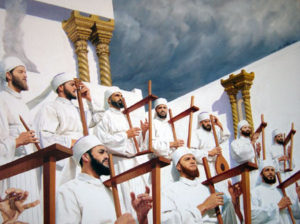
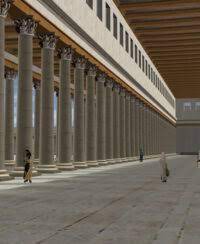
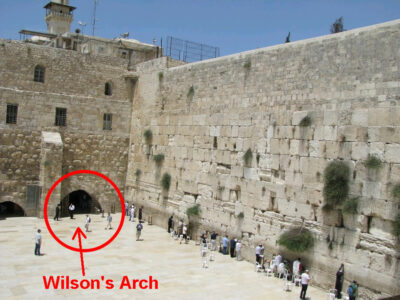 Men pray there as well as in the open area towards the south, up to the barrier of the women’s section. Is it not ironic that it was exactly there, where about 2,000 years ago the Meshiach was thrown out of the Temple by the Jewish leadership, and where the Jewish people lament the lack of peace and the oppression of hostile nations of the world today?1534
Men pray there as well as in the open area towards the south, up to the barrier of the women’s section. Is it not ironic that it was exactly there, where about 2,000 years ago the Meshiach was thrown out of the Temple by the Jewish leadership, and where the Jewish people lament the lack of peace and the oppression of hostile nations of the world today?1534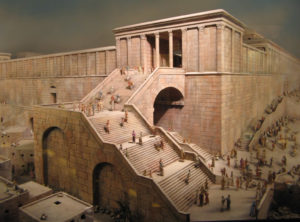
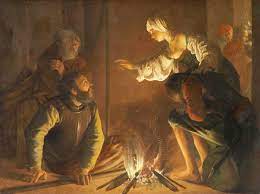

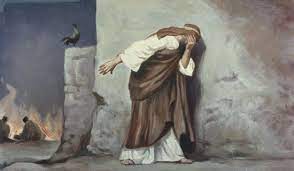
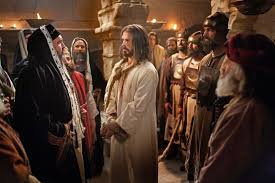
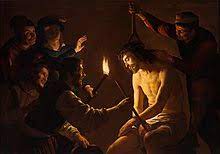
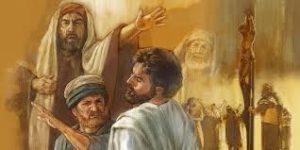
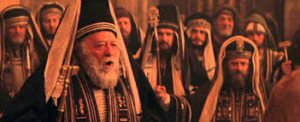
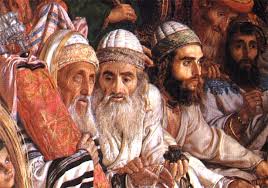
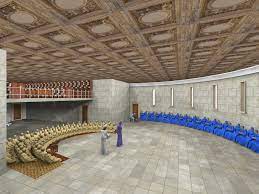
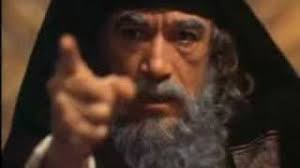
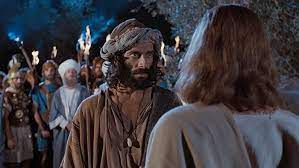
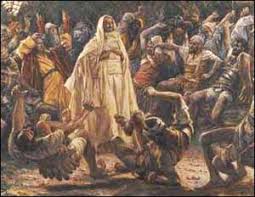
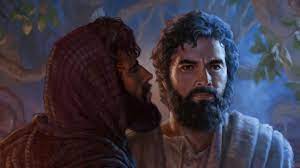
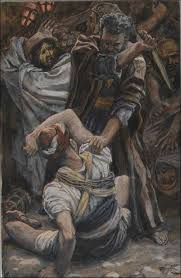
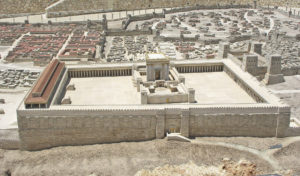 Caiaphas would not tolerate the Roman soldiers entering the Huldah Gates into holy ground. Each man carried either a club or a sword, and some also had a torch or lantern that cut through the night. The mob left the walls of Tziyon and walked down the sheer steps leading to the Kidron Valley and up the other side.
Caiaphas would not tolerate the Roman soldiers entering the Huldah Gates into holy ground. Each man carried either a club or a sword, and some also had a torch or lantern that cut through the night. The mob left the walls of Tziyon and walked down the sheer steps leading to the Kidron Valley and up the other side.